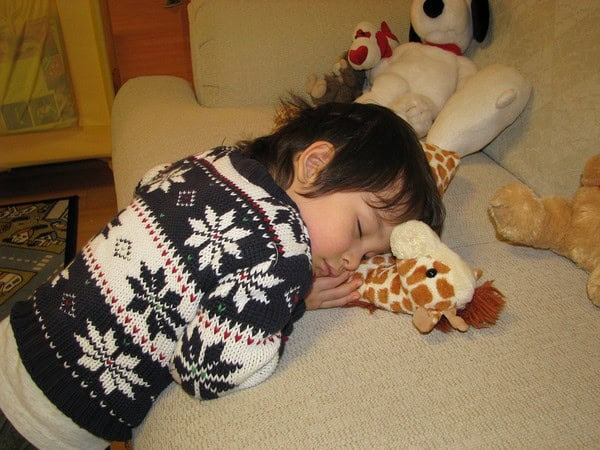Washington: A recent study has highlighted the significance of good sleep routines for children.
Sleep hygiene includes practices like providing a cool and quiet sleeping environment or reading before bed time to help kids unwind.
Researchers at the University of British Columbia (UBC) stated that a good bedtime schedule results in healthy sleep every day which is important for a kid’s development.
The findings appear in the journal Paediatric Respiratory Reviews.
“Good sleep hygiene gives children the best chances of getting adequate, healthy sleep every day.
And healthy sleep is critical in promoting children’s growth and development,” said Wendy Hall.
“Research tells us that kids who don’t get enough sleep on a consistent basis are more likely to have problems at school and develop more slowly than their peers who are getting enough sleep.”
The UBC review aimed at systematically analysing the evidence for sleep hygiene across different countries and cultures, and honed in on 44 studies from 16 countries. The focus was on four age groups in particular: infants and toddlers (four months to two years), preschoolers (three to five years), school-age children (six to 12 years) and adolescents (13 to 18 years). These studies involved close to 300,000 kids in North America, Europe and Asia.
“We found good-to-strong endorsement of certain sleep hygiene practices for younger kids and school-age kids: regular bedtimes, reading before bed, having a quiet bedroom, and self-soothing–where you give them opportunities to go to sleep and go back to sleep on their own, if they wake up in the middle of the night,” said Hall.
Even for older kids, keeping a regular bedtime was important. The review found papers that showed that adolescents whose parents set strict guidelines about their sleep slept better than kids whose parents didn’t set any guidelines.
Hall and co-author Elizabeth Nethery, also found extensive evidence for limiting technology use just before bedtime, or during the night when kids are supposed to be sleeping. Studies in Japan, New Zealand and the United States showed that the more exposure kids had to electronic media around bedtime, the less sleep they had.
“One big problem with school-age children is it can take them a long time to get to sleep, so avoiding activities like playing video games or watching exciting movies before bedtime was important,” said Hall.
[source_without_link]ANI[/source_without_link]

